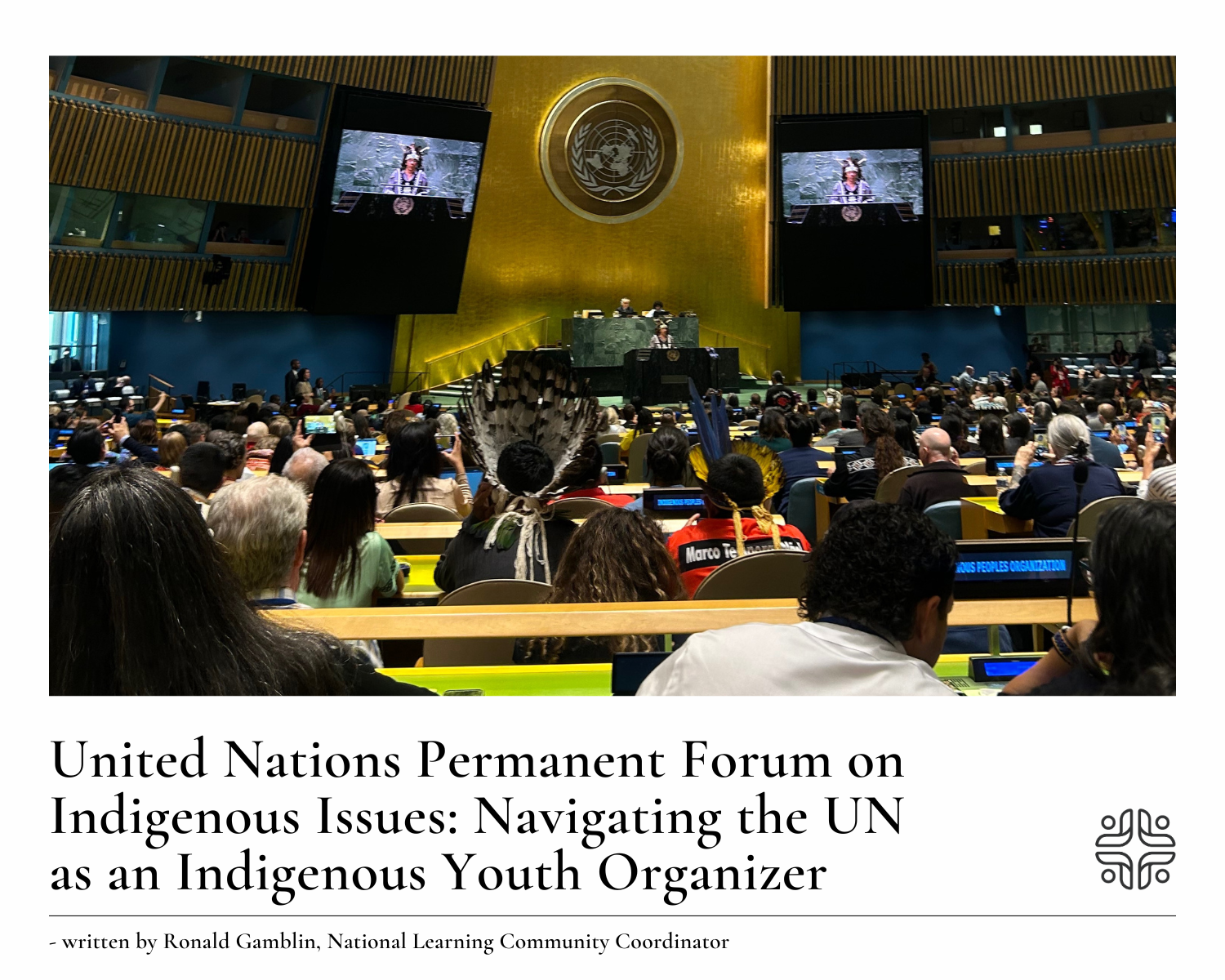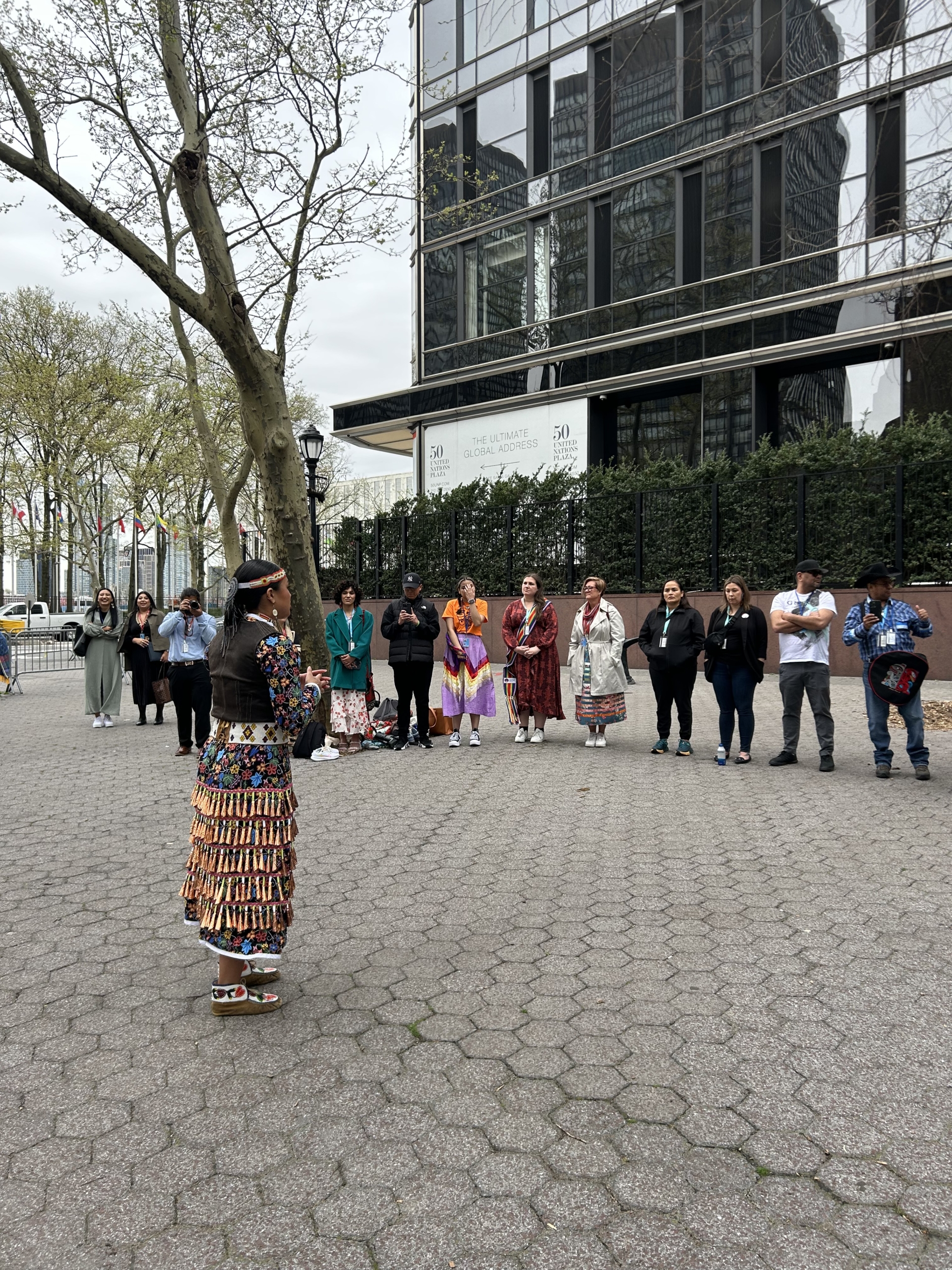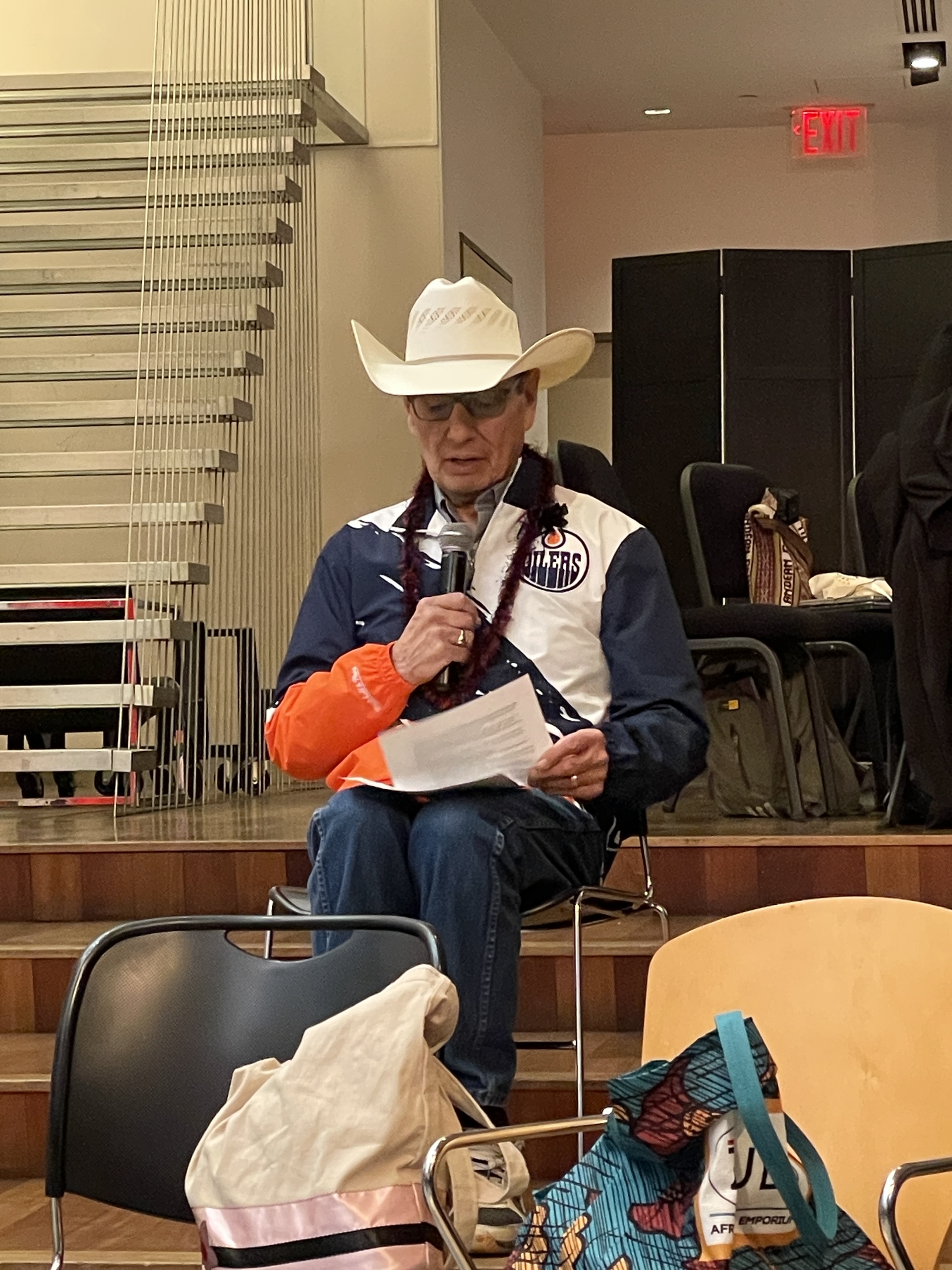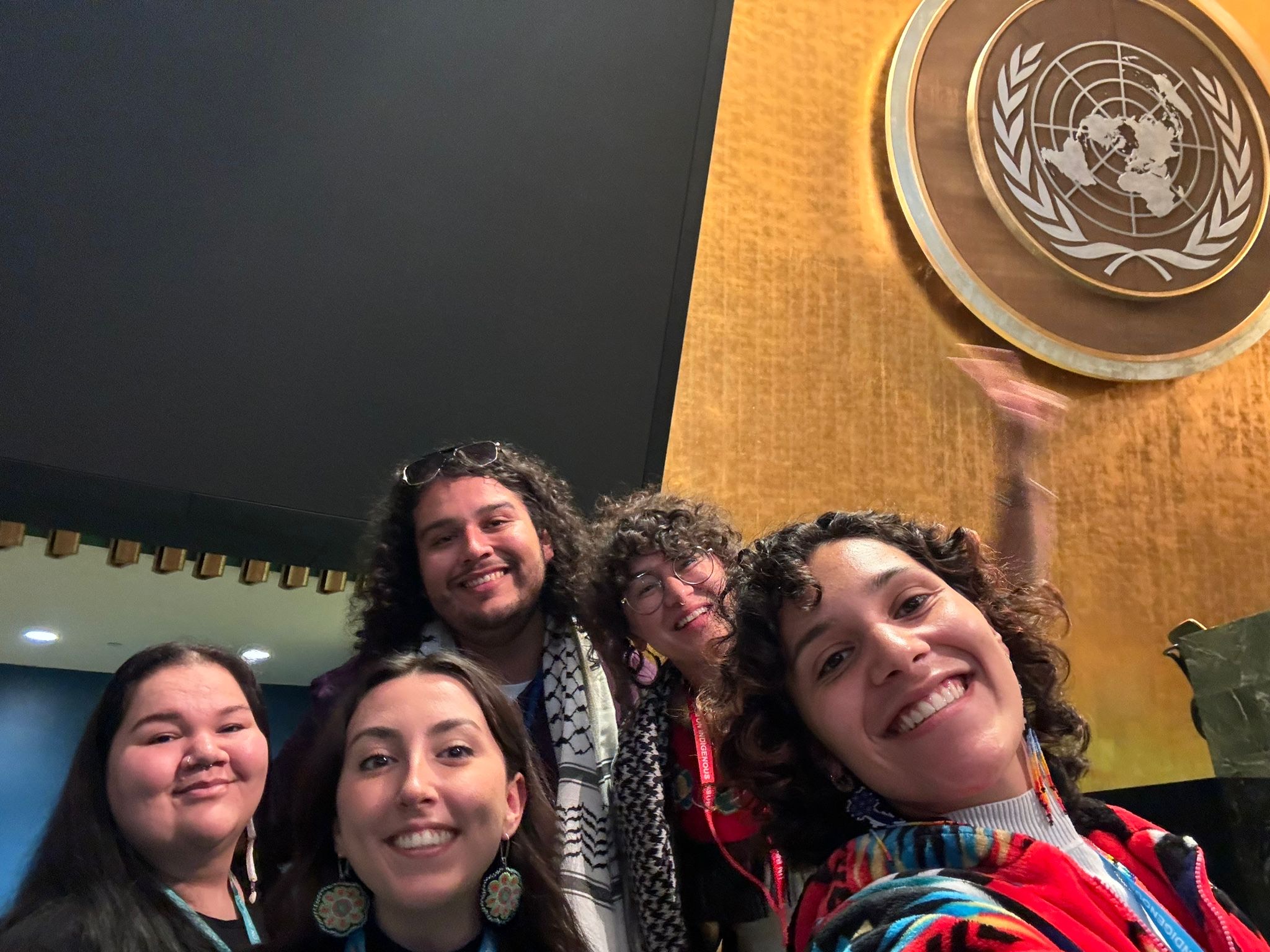It’s complex being an Indigenous person at the UN. You desire to make use of this opportunity for your community, but you’re also forced to stomach clear forms of violence and dismissal towards our Nations to even have a voice at this international forum.
Having participated at UNPFII24, my main takeaway was that colonizers built the UN and will always prioritize their stability and interests over our liberation. While our Nations will utilize this space in brilliant ways, the UN can only ever offer resources, and never lasting solutions. Regardless, our people will and should continue to use this forum in the most radical ways possible.
A Complex History
In sharing time with Dr. Wilton Littlechild on day one of UNPFII24, I was reminded of the importance of the efforts of those who came before us. Time and time again, he spoke to the history and struggle of the intergenerational effort to carve out room for us to be here.
While I have the privilege to attend and now have the insight to be able to criticize the effectiveness of the UN, getting access to it was a necessary step for the survival of many Nations. It remains one of the few ways some Indigenous Peoples can protect themselves. I am forever grateful for those who have made room for us.
Harm Towards Indigenous Nations
The UNPFII does not fail to remind Indigenous Nations of the anger and sorrow we hold because of our colonizers.
During my time there, I saw many clear examples of abuse directed towards Indigenous Peoples:
- Member States twisting truths about their efforts to support Indigenous Nations to gain political legitimacy from other Member States;
- Member States speaking about the importance of “economic development” in Indigenous territories while Indigenous Nations face armed conflict as their lands are ravaged by State-backed industries
- Indigenous peoples fearing for their own lives from Member States, including a specific case where member states kidnapped Indigenous people who spoke up at the UNPFII;
- Fake Indigenous groups using the legitimacy of the UN to gain recognition from global Indigenous People who lack information & context;
- Member states utilizing the oppression of Indigenous nations to justify their political standings within wars;
- Member states and UN officials perpetuate a false narrative that Indigenous peoples wish to only be rights holders within the dominion of Settler States and nothing more.
While the UNPFII can be perceived as a tool for our Nations, it also poses a threat to our sovereignty and the progress of our liberation.
The Brilliance of Indigenous Peoples
There was power in holding space with so many other Indigenous Peoples. Being able to witness and have our own stories heard, sowed seeds of solidarity I could only imagine taking root for the future.
Indigenous peoples were inventive and creative in using this colonial space. Calling for support for our Palestinian kin, creating solidarity networks that will last generations, making space for youth to confront politicians, and bringing attention and resources to some of our most dire situations.
Hearing the songs of different Nations, witnessing the disruption from youth, and the radicalness of those before us, has forever burned a fire in my heart that I did not expect. I have never felt so connected to our collective liberation.
Moving Forward
Being at UNPFII this year brought tears to my eyes but also passion to my heart. While I’m leaving the UN with a heavy spirit, I know many of us won’t take this privilege – of being able to access this space – lightly. I am proud to have found so many kin and excited to see how we will all continue to push for our collective rights as sovereign peoples.
My advice to Indigenous youth attending in the future is not to be blinded by the opportunity that attending the UN presents, but also to not be disheartened by the harm Indigenous peoples face at the UN. Listen carefully to each other’s stories and embrace each other’s joy. To reflect seriously on how the relationships and efforts we make here in this space, will support us to continue to push for the liberation of all our communities. We must do this to honour the efforts of those before us and the needs of those to come.
“Give youth a seat at the table and we will give you a world for our children’s children.” – Maggie Knight-Willams (Youth from the Gamilaraay Ngunnawal Nation)






